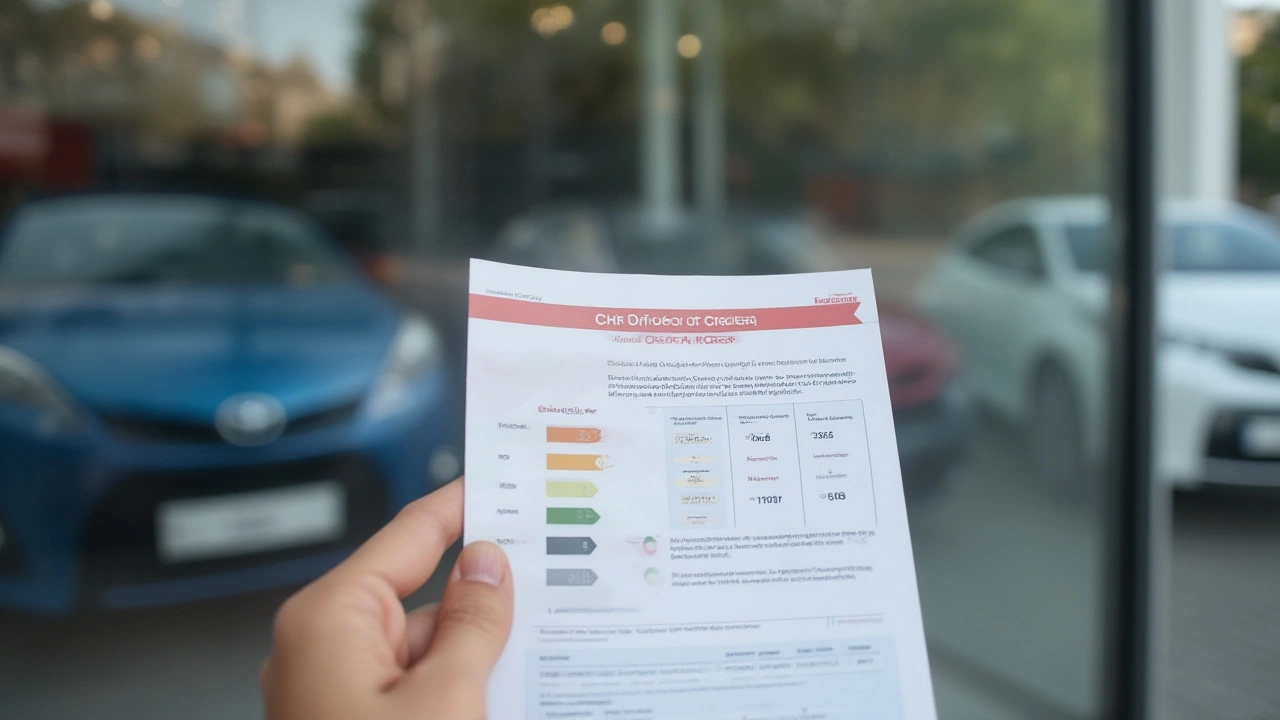Ever heard someone boast about getting a car loan with a credit score barely higher than a parking ticket number? Sounds wild, but it happens. When you’re eyeing a shiny Toyota, whether it’s a Camry or a beefy Tundra, you probably want to know: what’s the lowest credit score Toyota will finance? It’s a hot question, and there’s no sugar-coating it—nobody wants to show up at the dealership, fall in love with a Corolla, and then get told that their credit sends them straight back to used scooters. Here’s the honest lowdown—and yeah, you’ll probably find a few surprises here.
How Low Can You Go? Toyota's Minimum Credit Score Requirements
Alright, let’s cut through the rumors and get down to brass tacks. Toyota Motor Credit Corporation (that’s the official financing arm—most folks call it Toyota Financial Services or TFS for short) is where nearly all Toyota-branded manufacturers’ finance deals happen in the US. But do they post a magic number on their website for the minimum credit score you need? Not really. That would make things too easy, wouldn’t it?
Here’s what floats through dealer circles and credit analyst reports: The Toyota financing team tends to start getting nervous under 610-620 on FICO scores. I’m talking about the reliable credit scores—those three digits that say more about you than your favorite Spotify playlist.
So, what’s the unseen basement? Toyota dealers sometimes approve buyers with scores as low as 550—sometimes even 540. How? Well, special incentives, big down payments, a healthy income, or a co-signer can tip the scales in your favor even if your score has more potholes than a city street.
| Credit Score Range | Typical Approval Odds | Typical Interest Rate (%) |
|---|---|---|
| 740 and above | Very high | 2.9 – 4.9 |
| 680–739 | High | 3.9 – 6.0 |
| 620–679 | Moderate | 6.3 – 12.9 |
| 550–619 | Possible with conditions | 13.0 – 19.9 |
| Below 550 | Rare; hard to qualify | 20.0 + (usually denied) |
If you’ve got north of 700, you’ll have Toyota salespeople rushing to offer you 0% APR on select cars, bonuses, maybe even a free air freshener. But if you’re cruising at 550 or 560—the approvals might come with eye-watering interest rates, strict terms, and sometimes, a polite “not this time” unless you pull out a big down payment or strong co-signer.
Dealers have leeway, but TFS will always check the whole picture. They look at your income, debt-to-income ratio, employment history, and sometimes if you pay rent or a mortgage on time. Fun fact: A 2024 Experian study found that auto loan applicants with FICO scores under 600 made up about 17% of all subprime auto loan approvals. Not all of those went through Toyota, but the share’s big enough to show low credit isn’t a wall, more like a speed bump.
Big tip—if you already bank with an institution that offers car loans, sometimes their minimum scores run even lower than Toyota’s own finance rates if you’re a loyal customer in good standing. Worth comparing the two when shopping.

How Approval Decisions Are Really Made (It’s Not Just the Score)
Too many folks think it’s all about the credit score. But lenders aren’t robots. There’s a secret sauce—and no, I’m not talking about whatever Jasper, my dog, drools on the car seat. Toyota’s underwriters (the financial wizards behind the scenes) weigh several key factors that work together, kind of like a football team where everyone has to do their part—or you don’t make the playoffs.
- Credit Score: It’s the headline—almost always FICO. But it’s just one number in a thicker file.
- Down Payment: Ready to bring $3,000 or more? Even rocky credit can get you a deal if you’re dropping significant cash upfront.
- Income Verification: They want pay stubs, proof of steady work, maybe your tax return for the last year. You need to show you’ve actually got the money to make those future payments.
- Debt-to-Income Ratio (DTI): This is a biggie. If car, rent, and other loan payments eat more than 40% of your monthly take-home pay, expect tough questions.
- Employment Stability: Bouncing jobs in the past six months? It’s a red flag. Two years at the same gig will make the finance manager a lot happier.
- Vehicle Selection: Are you going for a brand new Highlander, or a 5-year-old Prius? Lenders are less edgy about used cars, since the risk is lower if they need to repossess—though rates for new Toyotas can sometimes be juicier thanks to brand incentives.
- Co-Signer Strength: A parent, partner, or trusted friend with great credit can open doors you can’t unlock on your own.
- Trade-In Value: Already have wheels to trade? That bumps down the amount you need to borrow—sometimes just enough to get you over the approval line.
Toyota’s application process checks these factors, sometimes using an algorithm and sometimes involving a human for anything not clear-cut. For borderline cases—like credit scores scraping the low 600s or high 500s—the underwriters will do extra digging. A big, verifiable down payment and proof of making regular payments on things like rent, utilities, or previous loans can make your shaky credit less of a worry.
People with “thin files”—meaning little credit history—might get treated the same as bad credit applicants, but Toyota sometimes has special first-time-buyer programs if you can prove at least six months’ steady work. Check with your dealer, and ask them to show you all incentives for first-timers, students, and military if they apply.
I’ve known buyers rejected by Toyota but approved by local credit unions, or, in rare cases, by third-party lenders working with the dealership. Those subprime lenders do exist, but they have higher rates, stricter rules, and, honestly, fewer smiles at the closing table.

Tips and Tricks to Get Approved—Even If Your Credit Is Shaky
You don’t want to get denied. Nobody likes having their hopes up, only to get shut down. But even if your credit’s bumpy, your odds aren’t zero—if you play it smart. A lot of buyers land Toyota financing with scores most advisors would call “impossible.” Here’s how you can tilt the odds your way.
- Save Up for a Down Payment: This can’t be said enough. Every $500 extra you bring makes lenders more comfortable, especially below 620. If you can hit 10% of the car’s price, or $2,000–$3,000, you’ll look a lot better.
- Work on Your Credit—Just a Bit: Can you pay down credit cards? Get an old collection off your report? Raising your score even 20 or 30 points in a month or two can change everything.
- Get a Co-Signer: Find someone who trusts you (and whom you trust just as much). Their strong credit can override most lender anxiety.
- Shop Your Loan Before You Shop the Car: Check your pre-approval odds with Toyota and at least two other lenders (like your bank or a credit union) before you set foot at the dealership. Armed with pre-approvals, you’ll know where you stand—and can negotiate for better terms.
- Focus on Reliable, Lower-Priced Cars: The less you borrow, the less risk for the lender. Sometimes a used Corolla or Yaris is the ticket to rebuilding credit and getting into a Toyota with a lower score.
- Avoid Add-Ons: Fancy extras like extended warranties and gap insurance can get rolled into your loan and bump up your payments—sometimes past what underwriters are comfortable with, especially with low credit.
- Time Your Application: Try not to apply after a big negative hit to your credit file—like a missed payment or new collection. Wait a few months, and pay everything on time. Dealers love squeaky-clean recent activity more than anything else.
- Bring Your Documentation: Pay stubs, proof of residence, list of references—walk in with a folder. The easier you make it for them, the quicker you’ll get answers (and sometimes more yeses).
One cool thing: Toyota sometimes runs "subprime specials" or programs for buyers recovering from tough financial times, especially if they've had a bankruptcy that's over a year old and have since rebuilt some credit. These aren't always advertised, so talk to the finance team upfront and be honest about your history.
Bad credit doesn’t mean you have to accept the first deal you’re offered. Ask if there's wiggle room—sometimes, if the dealer really wants to move inventory, they’ll get creative about making a borderline deal work.
As of 2025, interest rates have been rising, so even "good" credit borrowers might see higher payments than before. Don't let this spook you. It just means you have to run the numbers—know what you can afford before you sign. Plug your info into an online auto loan calculator, and don't be afraid to walk away if the numbers make you sweat.
Bottom line? You don’t need perfect credit to drive a Toyota—sometimes, not even close. Lenders want your business, but you have to help them take a chance on you. Step in with a plan, be honest, and keep hunting until you find a deal you can actually live with. If Jasper can patiently wait for his next treat, you can wait for the right financing. There’s always another Tacoma around the corner—and maybe, this time, the keys will be yours.








